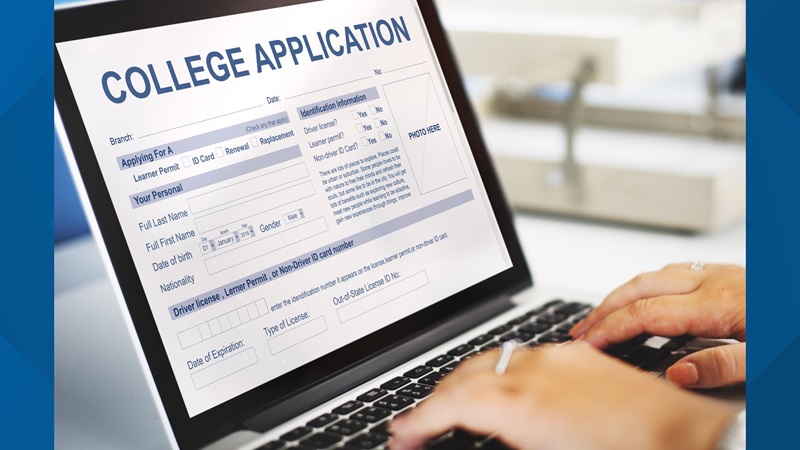Are you planning to attend college and want your college applications to stand out from the rest? You want to showcase your brightest qualities, but it may not be clear how to accomplish this task. In this article, we’ve identified valuable tips for preparing your college application. Let’s dive in! Explore Normal FAQs for quick answers to common application questions.

Here are 9 tips and guides on how to effectively complete and enhance your college applications.
What is one of the first things you should do when you get an application? Start thinking about which colleges you would like to apply and attend preferably during the summer or during the junior year of high school. This should preferably be done during summer before the final year of high school so that you may spend enough time reviewing and refining your options. Use the College GPA Calculator to gauge your academic standing early.
This is a good point to make sure you are selective and apply only to a few jobs rather than sending in your information for every opening you come across. Applying to multiple colleges is not an easy task when there are so many colleges to apply for and multiple deadlines and tours and supplemental essays. Reality: When searching for colleges to attend, the number of colleges that one can apply to is uncountable hence applying to 16 colleges felt unbearable and overwhelming.
To do this, it is useful to mark application deadlines on a calendar that you use often in order to always remember that you need to hurry up to fill in the application. However, it is important to note that the dates provided in this guide are not set in stone as schools have varying schedules.
It is important to attempt completing your applications one or two days before the stipulated date. This is so helpful because it provides you with ample time to go through your applications and submit them without poeting under pressure. For more on managing timelines, see How to Calculate Your Final Grade.
Trying to earn high scores in tough courses is one of the crucial aspect tips for preparing your college application. Colleges aim to understand how you would fit into their academic environment and whether you would thrive or just get by. Here are some tips to help you achieve high scores:
First of all, you should look for information about the colleges. One of the factors that are considered and which define the ranking of the school to a considerable extent is the impression that the students of the school have of the school they are attending. Not a very accurate method if they haven’t been to other schools also which I doubt most have. Some of the other variables in the ratings are related to what high school counselors and other administration figures regard various colleges. This is not a useful game to play in the sense that if the purpose is often on the other side, one is trying to know if this particular student will succeed at this particular college.
Rather, just for the opportunity for fitting and finding the ways how, together, both you and the college can bring the best from each other. Which specific programs, desirable attributes, important experiences, teaching philosophies does this college espouse to you? What did you learn from your experience, and what qualities, personal & academic features will you contribute to the college? Is it in a place that you can consider the best place to live in? Are they getting the outcomes, which perhaps, you want your children to have after college? In this way, you can answer these questions as you create your balanced list of college. Do their outcomes match your aspirations? Use the High School GPA Calculator to align your academic profile with college expectations.
Create a balanced list by answering these questions, ensuring your choices reflect both your academic and personal priorities. For more, check Passing Grade.

Indeed, admission comes as one of the most important processes when entering college, and testing is among the major factors to think of. The choice of the examination or, rather, the number of examinations a student should take also should be made carefully. This knowledge is important when deciding on a test since there are similarities between the tests’ aims and objectives. The SAT examines evidence based in reading, writing, and math; includes a no calculator section; has put importance on data interpretation and problem solving; and has a scoring range of 400-1600.
The ACT offers English, math, reading, and science reasoning sections with an optional writing section, and presents mostly objective questions at a quicker pace and is administered at a quicker speed in comparison to the other exams and offers the tested persons a raw score of 1-36. There is a good argument that the test that suits you best is the one on which you perform way better than the other test. So it is advisable for you to take a trial SAT and trial ACT to identify which test is more suitable for you. Also, check the requirement of schools you are applying to have changed into testing optional that means you can decide whether or not to include your score on tests. It is also necessary to schedule when you want to take your tests; check their dates and registration details and sit your preferred test(s) at least two times as you prepare yourself with study material. Pursue books, articles,tips and other relevant sources online, or enroll for prep classes to improve your outcome. For strategies, see How Will My Current Grade Affect My Semester GPA.
However, some colleges superscore which means that they combine different test sections for different test dates: if you score high for a particular section on one date but low the other times, then your best scores will be summed, which is good news. Finally, assess if it is wise to apply for test-optional colleges based on skills that can counterbalance poor performance in tests in favor of impressive performance in GPA and additional or extracurricular activities. Given the focus on strengths, research and planning in the approach to testing, the big testing question does not have to be creepy and the testing process can positively contribute to the college application.
Tips on writing your college application essay include: Ensure to start early to assist you have adequate time for brainstorming, writing, rewriting and proof-reading. Knowing the instructional cues is essential in engaging with the essay question, making certain to include all aspects of the question and guideline.
If the content is to sell emotions, ensure it is as realistic as possible and written from a genuine perspective as is the case with articles on personal experience, views and feelings. Make representations where possible rather than simply saying it as you would want to prove your points aptly. Always write your paper with a specific main topic so that the ideas can hence be aligned to walk in one direction and should be brief so that the reader can be able to follow them without much difficulty.
The final stages of completing an essay involves going through your work and polishing it in stages, this includes going through the work many times in order to identify errors and ensure the writing is flowing well. Sitting down and thinking about our experiences makes us have an understanding of how the world works and how we would want things to be done to suit us better in future. Illustrate the theme of identity change, or a struggle with personal growth, and show possible ways to cope with the change. Do not use a lot of stereo-typed and keep the language and the general picture of the company positive despite the problem areas. Why you?”: explain why you are interested in the program or school, and demonstrate passion and enthusiasm for the opportunity. For related tips, explore Grade Calculators for Teachers.

This is an important point in which careful and formal approach must be taken when requesting a recommendation letter from teachers, counselors or any other mentors. Start with asking those close to you, since they are likely to provide the most accurate descriptions of your skills and capabilities. It is advisable to call at the workplace, or you can write a formal note explaining the reason for your request and some details about the recommendation, for example the kind of program, scholarship or other type of grant that you are applying for.
Getting ready to meet your potential recommenders be ready to talk about your intentions to pursue academic or professional career, your accomplishments and experiences that might be connected with the recommendation. In order to get a well-researched and personalized letter, you have to give them all the info that can help them write, for example: Resume, transcripts, or a list of accomplishments.
They need sufficient time to write a terrific letter and thus, extend your request much earlier than the expected deadline. Later send them a reminder in advance closer to the deadline and, to top it up, be polite and thank them for the time and support given to your application. You should also follow up on the recommendation once submitted by writing a thank you note of thanking them. It is also useful to keep your recommenders informed of the outcome of your application process. Your recommenders are recommending you as a person, so it will be thoughtful of you to update them on the result of your application.
In sum, in order to have highly favorable references one should have positive and professional relations with the people who provide recommendations, should not only be polite and clear while asking for these letters but also be grateful for the support received. For more on academic planning, see Grade Calculators for Teachers.
The activities, leadership positions, and volunteer work you selected must be those that are closest to your heart as well as close to what you are good at. Ensure that the activities you undertake when in high school offer a glimpse of what you wish to achieve in the future while being able to prove that one is versatile. Be sure to highlight any leadership roles you have had, including the tasks you considered in that capacity and what you accomplished.
Indeed, where possible, attempt to measure your involvement by quantifying the activities done such as volunteer hours or funds raised. For those massive descriptions make sure to use action verbs and where possible support with examples and real life incidents. Submit your application specially to the institutions with which you wish to be associated and emphasize your involvement in their relevant activities. In general, describe how you have benefited in these experiences and showcase your transformation for personal and career development as well as to prove your preparedness for higher learning. For more, see What to Do If Your Grades Are Slipping.
In asking for financial aid, scholarships, and grants, there are certain basic pointers that one has to follow before proceeding to other steps, and these are outlined as follows: This form is used to complete Federal Aid applications and grants, loans and Federal Work Study Programs and hence the accuracy of the information used in this form is very important. Moreover, it is also important to take note of research scholarships and grants for which may be acquired from federal and state governments, colleges, private organizations, or community groups.
You can try looking for merit-based scholarships that correlate well with your goals and your achievements, and improve your chances by writing the statement of purpose, academic essays, recommendation letters and other application documents correctly. The most important points are to adhere strictly to the due dates, to be well-prepared technically, and to follow all guidelines given closely. Finally, analyze other extra opportunities in order to get additional necessary money during the payment for education. For budgeting tips, check What If My Final Exam Is Curved.
It will be very beneficial to make an effort to prepare for every college interview because this way one will be able to make a good impression. This is possible and advisable to do by conducting some background research more on the college and it’s programs to show the interviewer how much you are interested in the college. Hear some typical interview type questions like ‘’What is your name?’’ ‘’Or tell me about yourself’’, or ‘’Why do you wish to join this college?’’ It’s advisable that in your responses you demonstrate your signature strengths, achievements, experiences, and how, where and why their values and program offerings can benefit from you and why you as a client should hire their services.
It is recommended to dress appropriately formally as a way of showing your respect to the interview process and plan to arrive early for the same reason as well. While in the interview, make sure you do not gaze away but make use of eye contact, listen very keenly to all the questions being asked and answer them equally well and fluently. The following were effective when used by male participants: Be curious and ask good questions to demonstrate interest. Lastly, is it appropriate to send a follow-up email after the interview, then yes, follow it with a thank you note to the college and remind it of your interest in the college. If followed, here are some effective steps that can be followed to help make an initial positive impression and enhance the possibility of success in the college admission process. For planning, try the Cumulative GPA Calculator.
When should I begin collecting information to use in my college application?
As a rule, the preparation for college application is more effective when started during the junior year of high school at the least. This lets you have the necessary standardized tests, investigate the range of colleges you might want to attend, and commence writing your application essays as well as other documents.
What are the most important parts of a college application?
The key areas that prospective college applicants are usually required to submit are the high school report card, results of standard standardized exams, letters of recommendation, and last but not the least, the application essay. These components give the admission officers a clear and holistic view on the student’s performance and character, achievements, and accomplishments.
How can I make my application stand out?
When applying for college, you always bear in mind that extra effort must be made to ensure that the recruiter is sold on your personality, skills, and accomplishments. Leadership roles in your extra curricular activities, engagement in community services as well as taking up challenging courses should be considered. Furthermore, you should prepare a unique personal statement which reflects yourself and your dreams.
What should I do if I don't have many extracurricular activities?
If you cannot list a lot of activities, more important is the overall quality of the data filled in. Be sure to emphasize every single extra-curricular activity you have had an interest in, including the ones which are unrelated with the school. In addition, pursuing new responsibilities or volunteering, for new experiences and challenges can sometimes be more effective in conveying one’s intentions and engagement.
In conclusion, the college application process is definitely tiring and may be daunting, however with appropriate planning it does not have to be so. By beginning early, students are able to dedicate time to finding the college they want to attend, to make them part of their best application profile and avoid missing deadlines. Be happy for the progress you have made and be eager to take on the next challenge in store for you. Good luck! For more guidance, check Semester Grade Calculator.